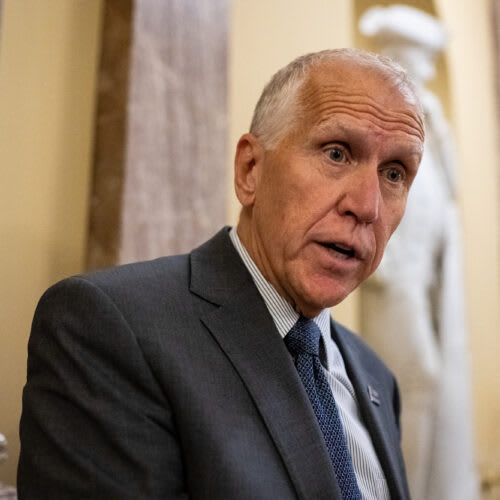The Looming Health Insurance Crisis: Lessons from the Past
 The Tech Times
The Tech Times
The recent release of a report by the Congressional Budget Office (CBO) paints a grim future for nearly 12 million Americans who stand to lose their health insurance under the proposed Senate GOP bill. This development calls for a deep dive into the historical context of health insurance in the United States, highlighting past trends and the potential implications of this policy shift.
A Brief Historical Overview
The American healthcare system has long been a contentious topic, with its roots tracing back to the early 20th century. The idea of health insurance began to take shape during the Great Depression, as financial hardship made medical care unaffordable for many. It wasn’t until the post-World War II era, with the introduction of employer-sponsored health insurance, that the system began to resemble its current form.
The 1960s brought significant changes with the establishment of Medicare and Medicaid under President Lyndon B. Johnson. These programs expanded coverage to the elderly and the poor, marking a pivotal moment in healthcare access. However, the system remained fragmented, with millions still uninsured.
Fast forward to 2010, the Affordable Care Act (ACA), commonly known as Obamacare, attempted to fill these gaps by expanding Medicaid and providing subsidies for private insurance. While it significantly reduced the uninsured rate, it also ignited a political firestorm that continues to influence healthcare policy debate.
Current Developments: The CBO Report
The CBO’s recent analysis highlights the stark realities of the proposed Senate GOP bill. The bill aims to dismantle substantial parts of the ACA, leading to an estimated 12 million people losing their health insurance. This rollback threatens to reverse the coverage gains made over the past decade, potentially leaving millions without access to affordable healthcare.
The proposed changes are reminiscent of pre-ACA days, where healthcare access was heavily reliant on one’s employment status and financial situation. This scenario raises concerns about the healthcare system’s resilience in mitigating economic disparities and ensuring universal access to necessary medical services.
The Stakes for the Future
The potential impact of this policy shift extends beyond individual healthcare access. A rise in the uninsured population could lead to increased uncompensated care costs for hospitals, higher premiums for insured individuals, and a greater burden on emergency services, which often serve as the last resort for uninsured patients.
Furthermore, the dismantling of ACA provisions could disproportionately affect low-income families, the elderly, and those with pre-existing conditions, exacerbating existing health inequities. As history has shown, such disparities can lead to broader societal consequences, including reduced workforce productivity and increased public health risks.
A Call to Action
As the Senate GOP bill awaits deliberation, it is crucial for policymakers to consider the lessons from history. Ensuring access to affordable healthcare is not just a moral imperative but a societal necessity. The past has demonstrated that piecemeal solutions often lead to greater systemic issues, while comprehensive reforms can drive significant improvements in public health outcomes.
In this moment of potential regression, the voices of constituents, healthcare professionals, and advocacy groups are vital in shaping the future of American healthcare. As the debate unfolds, the question remains: will the United States move towards a more inclusive healthcare system, or will it revert to a landscape marked by inequality and uncertainty?
Source: Nearly 12 million people would lose health insurance under Senate GOP bill
Subscribe to my newsletter
Read articles from The Tech Times directly inside your inbox. Subscribe to the newsletter, and don't miss out.
Written by
